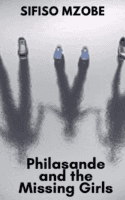Did you know?
People with disabilities are the largest minority group on the planet. However, they are often overlooked. Because they have no access into various buildings and into public transport like trains and busses and taxis, they are not often seen out and about.
Also, many disabilities are classified as ‘invisible illnesses’. In these cases there is often no crutch, wheelchair, or missing limb to indicate to the regular public that inside their bodies, things are very different to able people. People with invisible illnesses may be in a great deal of pain, unable to pick up certain objects, and have limited use of certain limbs – but it isn’t obvious at a glance.
This lack of visibility in public spaces means disabled voices are often overlooked. This is made worse by the lack of understanding of disabilities. For example, there are some kinds of disabilities that are consistent, such as some paraplegics can’t move their legs at all, ever. Yet many disabilities are episodic. This means some days are bad and other days are pretty good. Most wheelchair users, for example, can use their legs to some degree. One person might even be able to dance for a few minutes out of their chair, before needing it for the rest of the night.
Because of this lack of visibility, and a wide range of negative stereotypes, disabled voices are nearly always dismissed when they try to explain their needs. The fights for disability rights are endless. They need extra effort from the very people who have the least amount of spare time. That’s because an enormous amount of extra ‘daily life’ work is created by having a disability and / or chronic illness (a condition that cannot be cured).
One of the current issues zipping around the globe is the plastic straw ban. For able-bodied people, the straw ban seems simple: ‘Straws can hurt sea life; there are alternative straws if you need one; the world has too much plastic; so just stop using plastic straws. It is an easy thing for able-bodied people to give up. This means that many environmental groups use it as a ‘gateway’ plastic item to get people thinking about the unnecessary plastic waste that is hurting the environment.
The reality is, however, that banning plastic straws puts creates an enormous burden for our most vulnerable population. For many, plastic straws are their only way to drink, and for some, to eat.
For example, the author of this story has Ehlers-Danlos syndrome and fibromyalgia. Her limb braces are sometimes mistaken for fashion accessories. However, her problems mean that sometimes she can’t lift a glass or cup to her mouth. She can be okay for months, and then something goes wrong, and she is back to being unable to cut her food or bring a drink up to her lips. In these cases, she uses straws to be able to drink anything, be it cold water or soup or hot coffee.
Many alternatives to plastic straws are expensive. This is a burden on disabled people, as they often are on low incomes, to none. On top of that, they also have enormous expenses able people don’t have, due to the sheer cost of being disabled.
Alternatives to plastic straws don’t work for many disabled people for a variety of other reasons, such as:
– Needing positional (bendable) straws for people who have to drink and eat in a lying-down position. (Silicon straws can bend, but they won’t stay in position. Try to keep that silicon straw bent … without using your hands … while lying down!)
– Needing straws that can take hot liquids. If you can only eat or drink through a straw, you want some soup, or a coffee, too.
– Needing straws that are safe. For example, if you have a bite reflex, glass straws would break in your mouth.
– Needing straws that are easy to sanitize. Many disabled people have a compromised immune system, so get sick easily. They don’t just need their straw to be clean, but sterilized.
There are many more examples. But to make it easier, here is a chart that helps break down why the alternatives to plastic straws can be unsuitable for a disabled person.

The disabled community around the world has been pleading with governments to listen to disabled people’s needs, and realise that many lives depend on plastic straws. But their needs are routinely ignored by both the communities they live in, and their governments.
The straw debate is not about disabled people not caring about the environment. It is about disabled people being part of society, and so environmental measures should not threaten the lives of the most vulnerable in our populations.
As it is, plastic straws only make up .03% of sea waste. We, as a society, may feel like we are doing the environment a favour by not using plastic straws, (and hey, every little bit helps), but banning plastic straws will not save the environment.
What is one of the biggest sources of plastic sea waste? The fishing industry: 45% of all sea waste comes from this industry.
So why is society attacking a tool many disabled people need, when it is less than 1% of plastic sea waste, rather than going after the fishing industry to be more responsible? Because for most of society, giving up plastic straws is easy.
Disabled people are not telling the world to keep using plastic straws. If a person doesn’t need them, then don’t use them. Wonderful. What they are asking is for society to remember that disabled lives matter. We must not ban something that is some people’s only way of safely eating and drinking without being attached to an IV (tube into a vein) or feeding tube. Both of these are unpleasant, and further limit a person’s ability to do activities and socialise.
We all deserve to live as best as our minds and bodies allow.
*****
Tell us: Have you any ideas on how people who need them can easily get bendable plastic straws, but not the general population?






